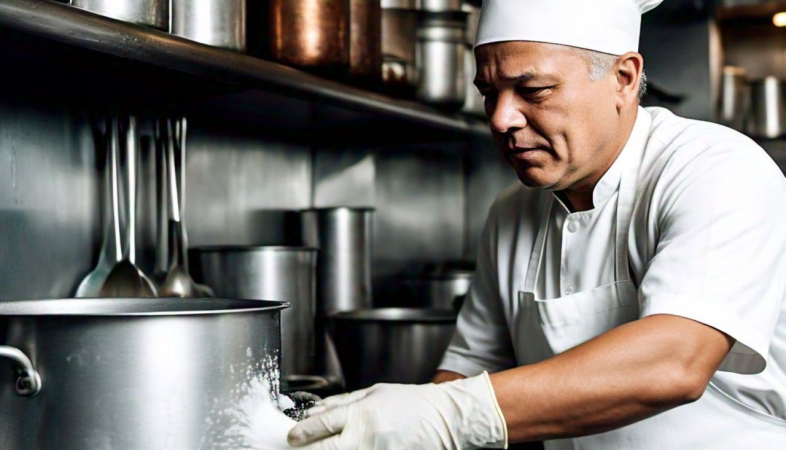Staff Training Secrets: What Sets the Best Servers Apart
By understanding the training secrets that set the best servers apart, restaurants can enhance their service quality and overall guest experience.
In the bustling environment of a restaurant, servers are the
frontline ambassadors of the dining experience. They hold the key to customer
satisfaction and can significantly influence repeat business and positive
word-of-mouth. While many establishments prioritize hiring experienced staff,
the best servers often possess qualities that are cultivated through effective
training and a commitment to continuous improvement. By understanding the training
secrets that set the best servers apart, restaurants can enhance their service
quality and overall guest experience.
One of the foremost qualities of exceptional servers is their deep product knowledge. Top servers understand the menu inside and out, from the ingredients to the preparation methods and flavor profiles of each dish. This expertise allows them to make personalized recommendations, answer guest inquiries confidently, and pair dishes with appropriate beverages. Training programs should emphasize comprehensive menu knowledge, encouraging servers to taste the dishes themselves and engage in interactive sessions with chefs. This not only boosts their confidence but also enhances their ability to communicate the menu’s highlights effectively.
Equally important is the emphasis on soft skills during training. Exceptional servers possess strong interpersonal skills that enable them to connect with guests on a personal level. Training programs should include modules on communication, active listening, and emotional intelligence. Role-playing scenarios can help servers practice their responses to various guest situations, from handling complaints to celebrating special occasions. By fostering a culture of empathy and understanding, restaurants can empower their staff to create meaningful connections with diners, ultimately enhancing the overall dining experience.
Time management and organizational skills are essential for success in a fast-paced restaurant environment. The best servers know how to juggle multiple tables, prioritize tasks, and maintain a smooth workflow. Training should incorporate techniques for effective time management, such as setting priorities, using tools like checklists, and employing strategies for managing peak hours. Servers should also be encouraged to develop their systems for tracking orders and maintaining communication with the kitchen and fellow staff members. The ability to anticipate guest needs and respond promptly contributes significantly to customer satisfaction.
Another hallmark of top servers is their adaptability. The restaurant industry is dynamic, with changing menus, guest preferences, and unexpected challenges. Training should emphasize the importance of flexibility and problem-solving. Servers should be encouraged to think on their feet and adapt to varying situations, whether it’s a last-minute menu change, an influx of customers, or a special request from a guest. Empowering staff to make decisions within their scope of authority fosters confidence and encourages proactive service, enhancing the overall guest experience.
Mentorship programs can also play a crucial role in developing exceptional servers. Pairing less experienced staff with seasoned mentors allows for knowledge transfer and skill development in a supportive environment. Mentors can share their insights, techniques, and experiences, helping new servers navigate challenges and develop their own style of service. This collaborative approach not only boosts the confidence of newer employees but also strengthens the team dynamic and fosters a culture of continuous learning.
Feedback and performance evaluations are vital components of effective server training. Regularly assessing server performance through feedback sessions and constructive criticism can help identify areas for improvement and recognize exceptional efforts. Implementing a system of peer reviews allows team members to learn from each other and fosters a culture of accountability. Celebrating successes, whether it’s a glowing guest review or achieving sales targets, reinforces positive behaviors and motivates staff to strive for excellence.
Technology also plays a significant role in modern server training. Utilizing digital training platforms can streamline the onboarding process and provide ongoing education for existing staff. Online modules covering topics such as menu updates, service standards, and customer engagement can be easily accessed at any time. Incorporating gamification elements into training programs can also enhance engagement, making learning enjoyable and interactive. Technology can facilitate quick assessments to reinforce knowledge retention and ensure staff are well-prepared for their roles.
Finally, cultivating a positive work environment is essential for nurturing exceptional servers. A supportive culture that values teamwork, open communication, and mutual respect can significantly impact staff morale and job satisfaction. Training programs should emphasize the importance of collaboration and recognizing the contributions of each team member. When servers feel valued and supported, they are more likely to deliver outstanding service and create memorable experiences for guests.
The training secrets that set the best servers apart encompass a holistic approach to skill development, focusing on product knowledge, soft skills, adaptability, and mentorship. By prioritizing these elements in training programs, restaurants can cultivate a team of exceptional servers who consistently deliver exceptional dining experiences. Investing in staff training not only enhances the quality of service but also contributes to increased guest satisfaction, loyalty, and ultimately, the restaurant's success in a competitive industry.
.png)





























